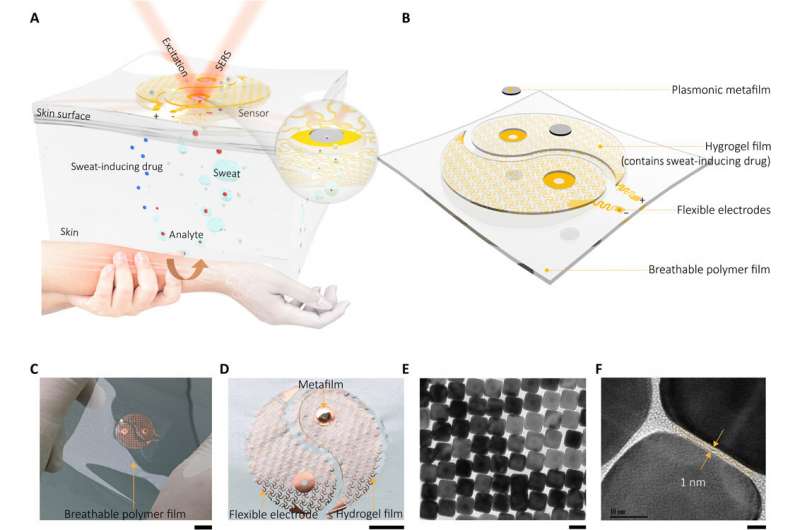Wearable sensing technology is an essential link in
personalized medicine, where researchers must track multiple
analytes inside the body simultaneously, to obtain a complete
picture of human health. In a new report on Science Advances,
Yingli Wang and a team of scientists in biosystems, engineering and
information science at the University of Cambridge and Zhejiang
University in the U.K. and China, presented a wearable
plasmonic-electronic sensor with “universal” molecular recognition
capability. The team introduced flexible plasmonic metasurfaces
with surface-enhanced Raman scattering (SERS) activity as the
fundamental sensing component. The system contained a flexible
sweat extraction process to noninvasively extract and fingerprint
analytes inside the body based on their unique Raman scattering
spectra. As proof of concept, they successfully monitored varying
trace-drug amounts inside the body to obtain an individual drug
metabolic profile. The sensor bridged the gap in wearable sensing
technology to provide a universal, sensitive molecular tracking
process to assess human health.
Wearable plasmonic-metasurface sensor for universal
molecular fingerprint detection on biointerfaces



